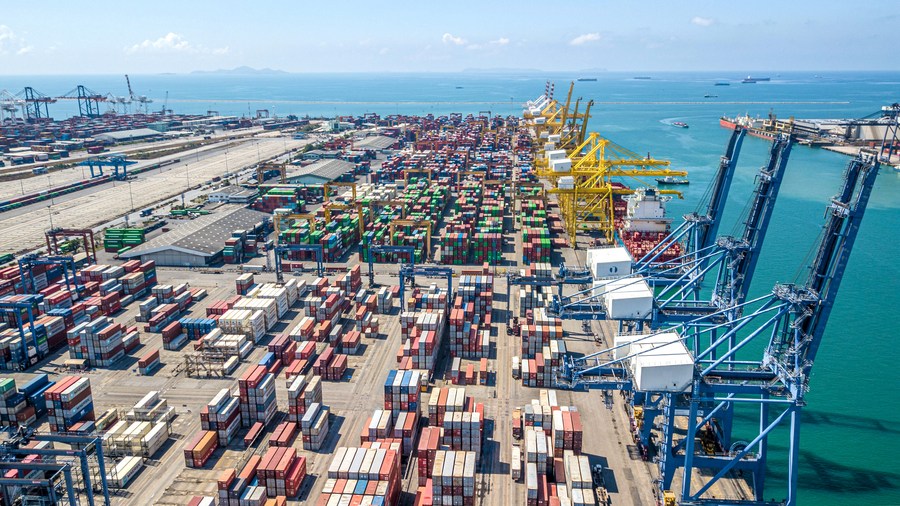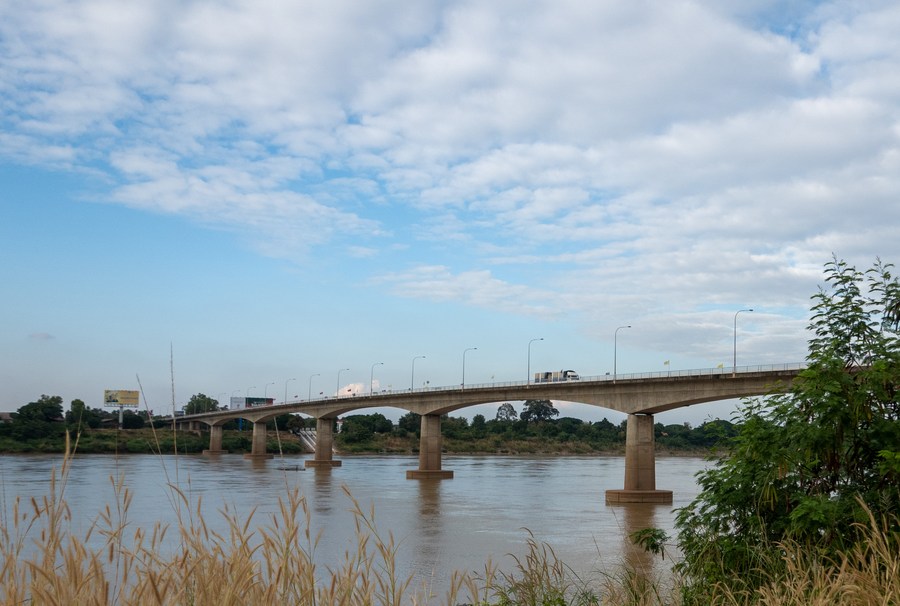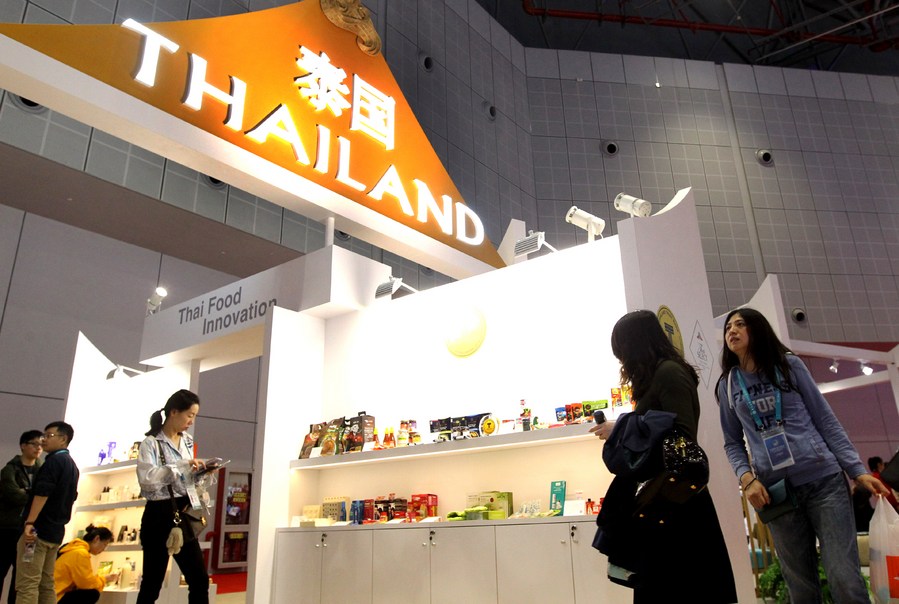RCEP helps build regional resilience, boost economic recovery, says Thai commerce official</label>

Aerial photo taken on Jan. 24, 2022 shows a view of the Laem Chabang Port in Chonburi Province, Thailand. (Xinhua/Wang Teng)
RCEP is aimed at creating a new regional economic architecture that supports and contributes to economic integration, enhances the regional supply chains and production networks, and strengthens economic cooperation among participating countries, said a Thai commerce official.
BANGKOK, April 2 (Xinhua) -- The Regional Comprehensive Economic Partnership (RCEP), which took effect in January, is set to play an important role in building the region's resilience through inclusive and sustainable post-pandemic economic recovery, a Thai commerce official said.
RCEP is aimed at creating a new regional economic architecture that supports and contributes to economic integration, enhances the regional supply chains and production networks, and strengthens economic cooperation among participating countries, Auramon Supthaweethum, director-general of the Department of Trade Negotiations under the Ministry of Commerce, said in a recent interview with Xinhua.

Photo taken in Nong Khai province, Thailand, on Nov. 15, 2021 shows a truck traveling from Laos to Thailand through the 1st Thai-Lao Friendship Bridge. (Xinhua/Lin Hao)
RCEP, the world's largest free trade pact ever forged, creates an environment where intra-regional trade will be further facilitated and barriers to trade and investment will be remarkably reduced, Auramon said.
It also helps strengthen intra-regional trade and investment where companies, investors and especially small and medium-sized enterprises will be able to have access to an integrated regional market that covers nearly a third of the world's population, international trade and global gross domestic product, she said.
The RCEP agreement, which groups 10 Association of Southeast Asian Nations (ASEAN) countries, as well as China, Japan, South Korea, Australia and New Zealand, came into force on Jan. 1 this year.

People visit the Thailand pavilion during the second China International Import Expo (CIIE) in Shanghai, east China, Nov. 6, 2019. (Xinhua/Chen Fei)
"RCEP and physical connectivity stemming from the Belt and Road Initiative will certainly create an open, transparent, fair and predictable growth and prosperity for the region," Auramon said.
Speaking of Thailand-China trade and economic cooperation outlook, she said both countries would benefit from the RCEP deal, as the elimination and reduction of tariffs and improved market access for goods and services will further enhance and create more business opportunities for both Thai and Chinese businesses, while the high-quality commitments for investment under RCEP will attract more Chinese enterprises to invest and establish factories in Thailand, further optimizing the bilateral trade and economic cooperation at large.
She also noted that the common rules of origin under the RCEP pact will facilitate regional supply chain management, increase sourcing options within the region, create more opportunities for small and medium-sized enterprises to integrate into the regional supply chains, and reduce trading transaction costs for businesses.
- Efforts underway to increase RCEP utilization: Malaysian official
- Interview: China vital for Asia in green growth, innovation, says business leader
- Interview: China continues to promote global growth, says CEO of Australian iron ore giant
- Guangxi's foreign trade hits record high in Jan-Feb
- Economic Watch: Chinese companies ride RCEP momentum to boost exports

